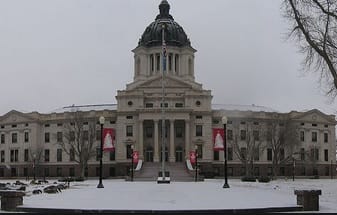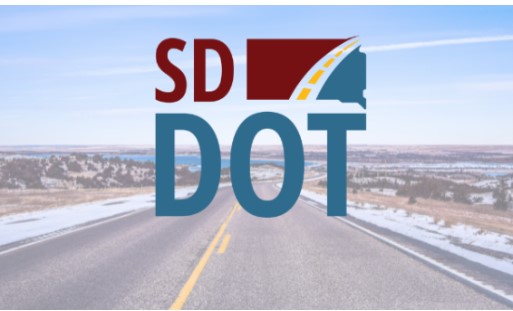SIOUX FALLS, S.D. – More than 10,000 voter registrations in South Dakota weren’t properly transferred to voter rolls due to a computer coding error dating back to 2022, South Dakota News Watch has learned.
Letters were sent to impacted voters in late January saying that state officials “discovered some registrations were not fully transmitted” due to a “technical programming error” that kept new and updated registrations from entering the system. The letter added that the problem has been fixed and “your ability to cast a ballot in an election was not impacted by this error.”
Those affected were people who renewed their driver’s license online through the Department of Public Safety and didn’t “opt out” of the voter registration section, according to Brad Reiners, director of communications for DPS.
A coding discrepancy resulted in a failure of “just over 10,500″ registrations from transferring properly to the Secretary of State’s office,” Reiners told News Watch in an emailed statement.
Only residents of South Dakota’s nine largest counties were impacted because of the state’s numbering system for counties based on population, he added.
“The DPS driver license online renewal system created a single-digit county designator code which was forwarded to the Secretary of State’s office,” Reiners said. “Their system looked for a two-digit code, so it did not recognize the records of counties (1 through 9). Once detected, the programming error was fixed immediately, and voter registrations have been properly received by the Secretary of State.”
The letter to impacted voters was signed by John Broers, director of driver licensing for DPS, and Rachel Soulek, election divisions director for the Secretary of State’s office.
Secretary of State Monae Johnson did not respond to an interview request.
Soulek told News Watch the issue stemmed from changes made to voter registration forms following a federal court settlement in September 2022. A judge determined that South Dakota had violated portions of the National Voter Registration Act (NVRA) under then-Secretary of State Steve Barnett.
As part of the settlement with the Rosebud Sioux and Oglala Sioux tribes, the state changed the wording on driver’s license applications so that the form requires a person to opt out of voter registration, rather than require them to opt in.
“DPS adjusted their system to be compliant with those required changes and that is when the coding error happened,” said Soulek. “This began prior to Secretary Johnson taking office. Our current staff discovered there was an error and within a day of finding out the coding error, DPS had a fix in place.”
Minnehaha County Auditor Leah Anderson said that 5,153 total registrations were impacted in the state’s largest county. Of those, 684 were new registrations and 4,469 were people who updated voting information or didn’t realize they needed to opt out, so they updated with no changes.
Anderson, who learned about the system error on Jan. 18, said she plans to bring in seasonal election staff to process registrations and update voter rolls, after which acknowledgments will be sent to new or updated registrants.
“I do have concerns about this error,” she told News Watch. “It’s creating a large workload at a busy time of year.”
Pennington County Auditor Cindy Mohler estimated that 2,700 voters were impacted in the Rapid City area and said she is working through updates with her staff.
Mohler, who became auditor in 2019 but has worked in the office since 2009, was asked if she recalled a voter registration programming error impacting this many people in the past.
“No, I do not,” she said.
Mohler is careful to distinguish between a programming error and unfounded allegations of voter fraud or election hacking stemming from the 2020 presidential election. South Dakota has seen a rise in electoral activism from citizen groups demanding access to voting records and pointing to alleged vulnerabilities in state election software.
“We know that’s where a lot of people’s minds have gone right now,” Mohler said. “Hopefully this doesn’t lead to any more of that. I don’t believe that we’ve gotten feedback from any voters (referencing fraud) when they received the letter.”
Lincoln County Auditor Sheri Lund said there is a “checks and balances” system that caught the discrepancy at the state level. She and other auditors have questions about the issue stemming back to 2022 and how that affected registration lists.
News Watch reviewed a letter received by a voter who renewed their driver’s license online in 2022 and received the letter Jan. 30, 2024, confirming some registrations were not properly processed for at least a calendar year.
“DPS states that it did not impact voters’ (ability to cast a ballot),” said Anderson, who was elected Minnehaha County’s auditor in 2022. “I am not able to confirm that information.”
The “motor voter” issue was part of a lawsuit filed by the Rosebud Sioux and Oglala Sioux tribes accusing South Dakota of violating portions of the NVRA, which was signed by President Bill Clinton in 1993 and took effect in 1995.
The law requires state officials to provide voter registration information and guidance to eligible voters when they renew their driver’s license through DPS or when receiving public assistance at the Department of Social Services and other state agencies.
U.S. District Judge Lawrence Piersol granted a summary judgment saying the tribes had “supported their claims of improper implementation of the NVRA by the Secretary of State, Department of Public Safety and Department of Social Services,” adding that Barnett as the chief elections officer “contributed to these failings through inadequate training and oversight.”
As part of the September 2022 settlement, South Dakota named a state NVRA coordinator to oversee the training and oversight process, which includes public reporting of voter registration data. The state also changed the wording on driver’s license applications to make it easier for eligible residents to register to vote.
“Unless citizens opt out, they are automatically processed through the voter registration process system as an update or new,” said Anderson. “We were told that most of the ‘updates’ that were part of the programming error had no change in record but are still regarded as updated registrations and will receive an acknowledgment card in the mail.”
There have been issues in the past with voters whose registration didn’t process from when they updated their driver’s license, but it didn’t keep anyone from voting, said Lund. She said that is likely the case with those involved in this recent programming error.











